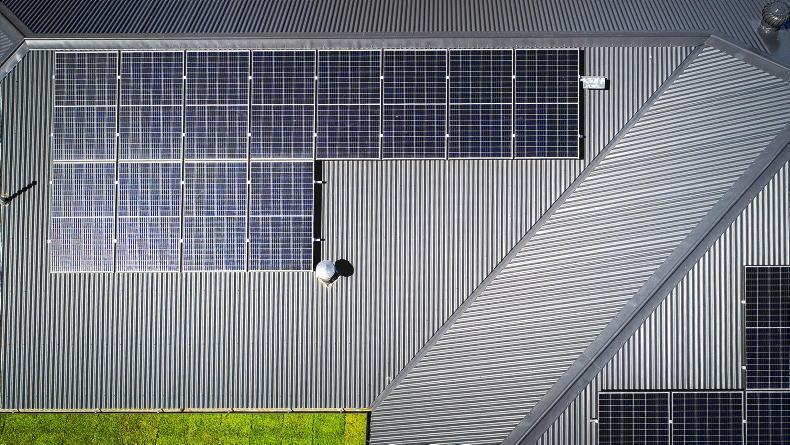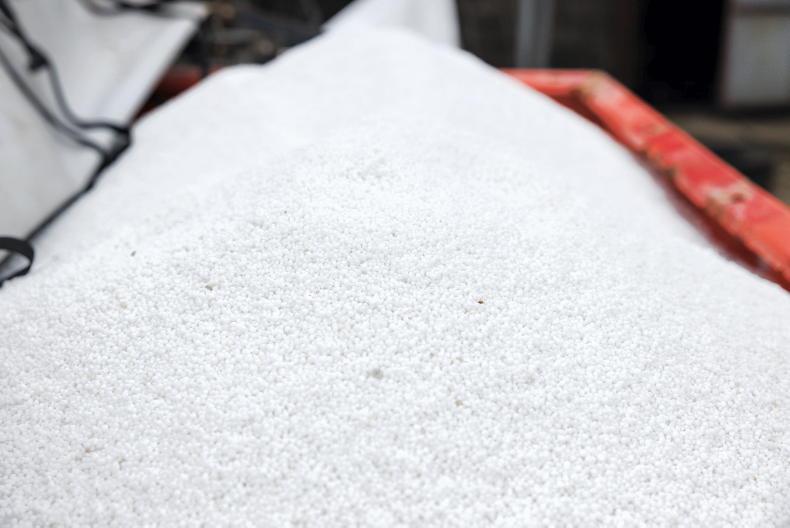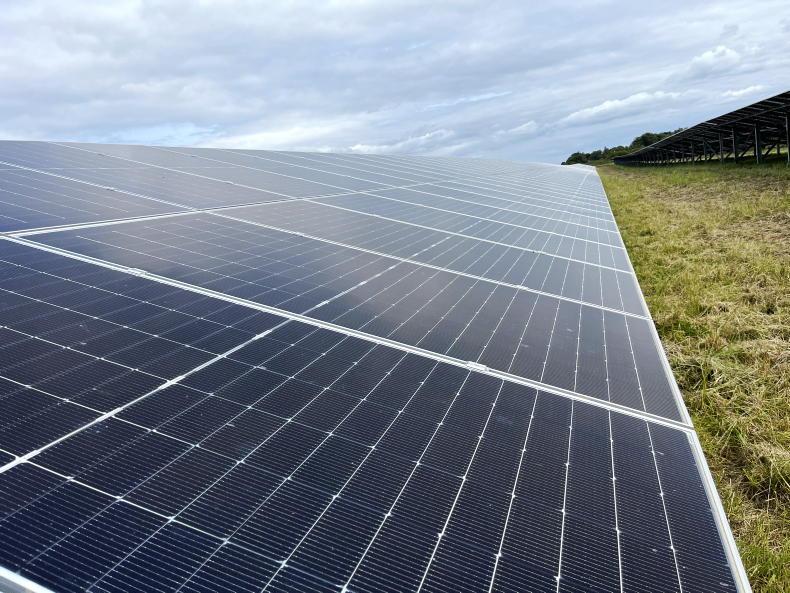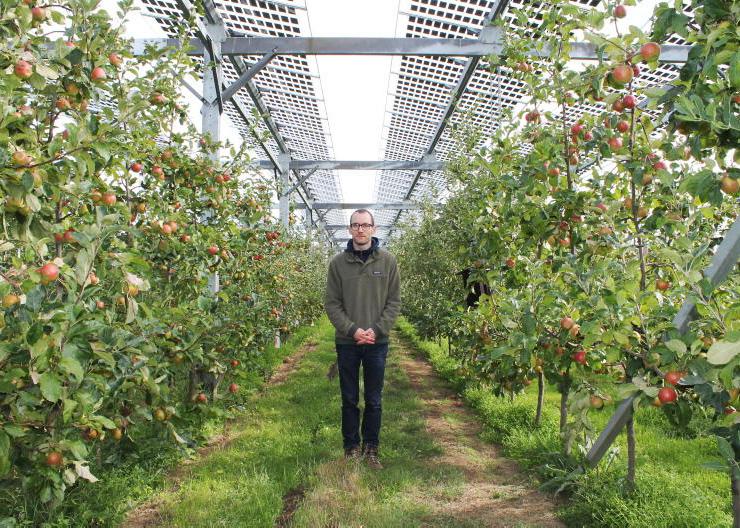Low electricity payment rates, waiting months for approval for grid connection and the final blow of learning that on-farm solar panels will not count towards the farming sector’s emissions reduction targets are turning some farmers off renewables.
That’s what Co Laois dairy farmer Bruce Thompson told the Irish Farmers Journal the day after the sectoral emissions ceiling for agriculture of 25% was announced by Government.
On Friday, Thompson “pulled the plug” on his farm’s plans to install solar panels set to generate 30kW/h of energy, a move which would have required him to invest tens of thousands.
He explained to the Irish Farmers Journal that his experience of on-farm renewables had been marred by delays and without approval to join the grid, have never even got off the ground.
“I was taking ownership of the decision. Obviously, there would be carbon coming from here, the farm, and we wanted to offset some of that. It seemed at the time like a no-brainer,” said Thompson.
“I would have been thinking we can use all of our own electricity on the farm, we have an electric car too, and sell the surplus back to the grid.”
Costs and delays
The Thompsons paid approximately €5,000 of the project’s expected costs of €30,000 already, a payment they will be looking to recoup.
Much of the delays and frustration experienced by the farmer resulted from not being approved for a connection to the grid.
No planning permission could be applied for until such approval was granted and despite applying “two or three times” over a period of months, there had yet to be any indication of such permissions being granted by the relevant authorities.
He described how this had differed from the reality of renewable on-farm energy generation experienced abroad.
Farmers in France were being paid twice the going rate for generating electricity in anaerobic digestion facilities while Thompson was set to receive one-third of the market price for his surplus energy: “If people haven’t the incentives to put these things in, they won’t do it.”
Farmers on their own
The announcement by Government that on-farm solar PV and anaerobic digestion would not count towards farming’s emissions reduction target of 25% by 2030 did not bode well for Thompson.
“It just seems like farmers now have been pushed into a corner to reduce stock numbers. The polarising of it all has only been divisive. It’s turned into ‘them’ and ‘us’ as farmers are taking the brunt of these decisions.
“I can’t fathom that for doing the right thing, you need to just go out on your own and hope that everyone else follows,” he remarked.
Read more
Emissions reduction measures to be voluntary for farmers
Analysis: what the 25% emissions cut means for farmers
'No clear pathway' to 25% emissions reduction
Low electricity payment rates, waiting months for approval for grid connection and the final blow of learning that on-farm solar panels will not count towards the farming sector’s emissions reduction targets are turning some farmers off renewables.
That’s what Co Laois dairy farmer Bruce Thompson told the Irish Farmers Journal the day after the sectoral emissions ceiling for agriculture of 25% was announced by Government.
On Friday, Thompson “pulled the plug” on his farm’s plans to install solar panels set to generate 30kW/h of energy, a move which would have required him to invest tens of thousands.
He explained to the Irish Farmers Journal that his experience of on-farm renewables had been marred by delays and without approval to join the grid, have never even got off the ground.
“I was taking ownership of the decision. Obviously, there would be carbon coming from here, the farm, and we wanted to offset some of that. It seemed at the time like a no-brainer,” said Thompson.
“I would have been thinking we can use all of our own electricity on the farm, we have an electric car too, and sell the surplus back to the grid.”
Costs and delays
The Thompsons paid approximately €5,000 of the project’s expected costs of €30,000 already, a payment they will be looking to recoup.
Much of the delays and frustration experienced by the farmer resulted from not being approved for a connection to the grid.
No planning permission could be applied for until such approval was granted and despite applying “two or three times” over a period of months, there had yet to be any indication of such permissions being granted by the relevant authorities.
He described how this had differed from the reality of renewable on-farm energy generation experienced abroad.
Farmers in France were being paid twice the going rate for generating electricity in anaerobic digestion facilities while Thompson was set to receive one-third of the market price for his surplus energy: “If people haven’t the incentives to put these things in, they won’t do it.”
Farmers on their own
The announcement by Government that on-farm solar PV and anaerobic digestion would not count towards farming’s emissions reduction target of 25% by 2030 did not bode well for Thompson.
“It just seems like farmers now have been pushed into a corner to reduce stock numbers. The polarising of it all has only been divisive. It’s turned into ‘them’ and ‘us’ as farmers are taking the brunt of these decisions.
“I can’t fathom that for doing the right thing, you need to just go out on your own and hope that everyone else follows,” he remarked.
Read more
Emissions reduction measures to be voluntary for farmers
Analysis: what the 25% emissions cut means for farmers
'No clear pathway' to 25% emissions reduction










SHARING OPTIONS